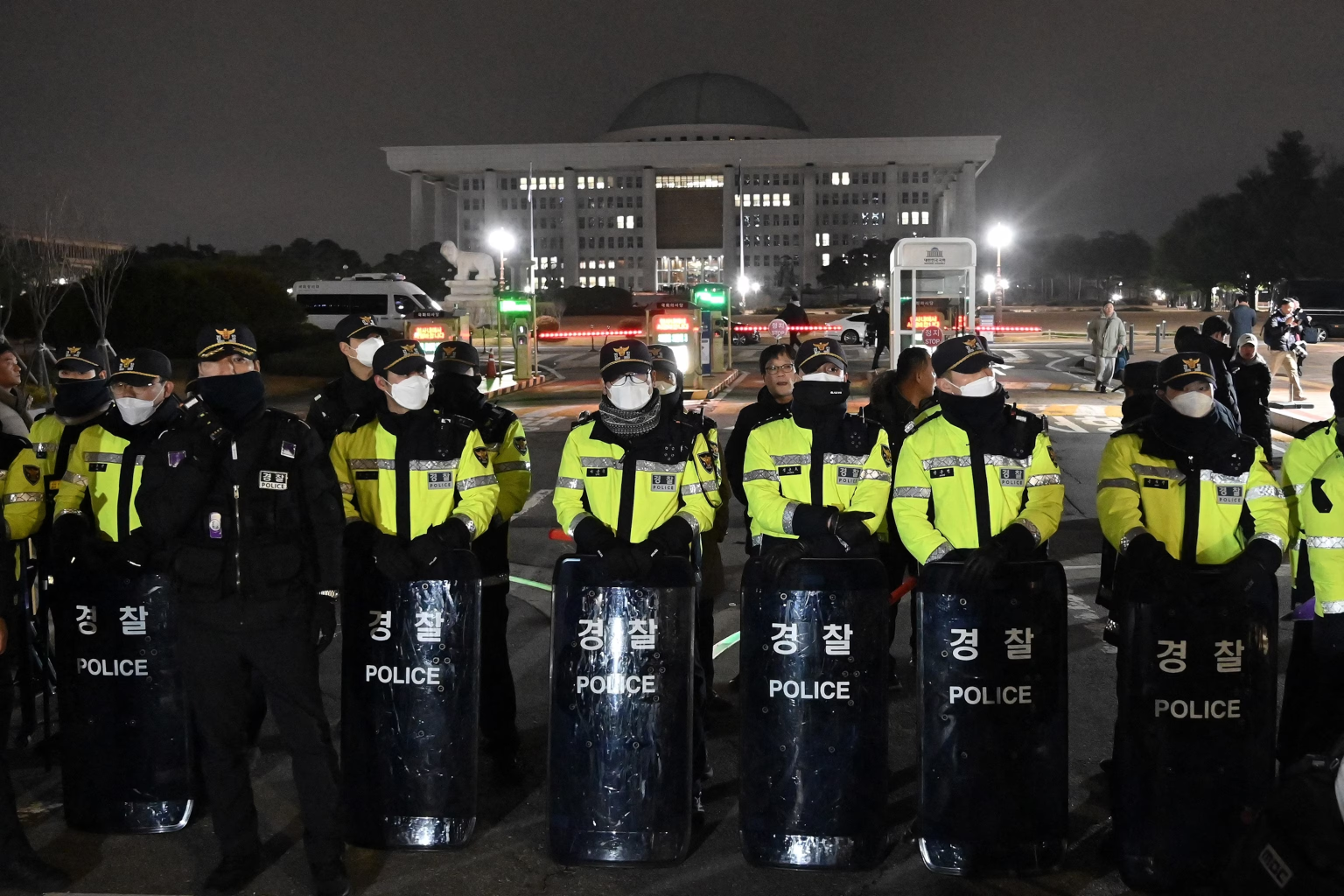Why Did South Korea Declare Martial Law?
The announcement shocked citizens and lawmakers alike. In his televised address, Yoon claimed the country faced existential threats, including interference from North Korea and internal “anti-state forces.” However, analysts suggest the move was a response to mounting political pressures rather than external threats.

President Yoon has faced a series of challenges since his election in 2022. His conservative People’s Power Party lost its majority in parliament during the April general elections, rendering his administration unable to pass critical legislation. Coupled with corruption scandals—including one implicating the First Lady—and approval ratings sinking to 17%, Yoon’s leadership appeared embattled. Critics argue that the martial law declaration was a desperate attempt to reclaim control amid impeachment threats against cabinet members and opposition efforts to slash the government budget.
What Is Martial Law in South Korea?
Martial law in South Korea allows the military to assume control during emergencies when civilian authorities are deemed incapable of maintaining order. It often entails the suspension of civil rights, including restrictions on protests, media censorship, and warrantless arrests. Historically, the measure was last invoked in 1980 during widespread pro-democracy protests. South Korea transitioned to a parliamentary democracy in 1987, and martial law has since been regarded as a relic of its authoritarian past.

Under Yoon’s decree, all political activities were banned, protests were prohibited, and the media was to be placed under government oversight. While South Korean citizens braced for a possible military takeover, the situation did not escalate to widespread violence, thanks in part to swift parliamentary action.

Parliament and Public Outcry: The Swift Repeal
The announcement sparked immediate backlash from lawmakers, including members of Yoon’s own party. Opposition leader Lee Jae-myung, head of the Democratic Party, called the declaration unconstitutional and urged citizens to rally at the National Assembly. Thousands responded, chanting slogans like “No martial law!” outside the heavily guarded parliament building.

Inside, lawmakers climbed barricades and fences to convene an emergency session. At 1:00 a.m. Wednesday, with 190 members present, parliament unanimously voted to nullify the decree. Under South Korean law, martial law must be lifted if parliament demands it, a provision that underscores the nation’s commitment to democratic checks and balances.

Shortly after, President Yoon conceded, announcing the repeal of martial law in a cabinet meeting. His abrupt reversal prevented further escalation but left the public questioning his judgment.
The Fallout: A Surprisingly Calm Morning
This episode underscores South Korea’s progress as a democratic society. The swift parliamentary action and peaceful protests highlighted the strength of its institutions and the public’s commitment to upholding democracy. However, the declaration of martial law, even briefly, has left a blemish on the country’s global reputation.

Experts warn that the incident could destabilize South Korea’s political and economic climate. As Yoon faces mounting calls for impeachment, the nation must navigate this turbulent period carefully to preserve its hard-earned democratic legacy.
South Korea’s Democracy In Question
Yoon’s brief experiment with martial law has dealt a significant blow to South Korea’s democratic image. Experts argue that the move was a political miscalculation that risked the nation’s stability and reputation. Comparisons have been drawn to historical events like the 1980 Gwangju Uprising and even the January 6 Capitol riots in the United States.
This episode serves as a stark reminder of the fragility of democracy, even in nations with strong democratic institutions. For South Koreans, it has reignited vigilance against authoritarianism and reinforced their commitment to preserving civil liberties.
The brief imposition of martial law in South Korea has sparked a political crisis, with President Yoon Suk Yeol’s future hanging in the balance. While the swift reversal showcased the strength of democratic checks and balances, it also highlighted deep divisions in South Korea’s political landscape. As the nation grapples with the aftermath, the events of this week will likely serve as a cautionary tale for leaders tempted to bypass democratic norms.


